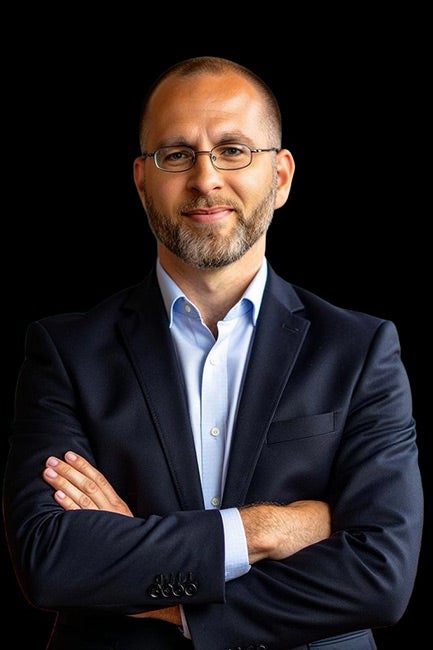What ‘Suits’ Teaches About Experiential Learning
In the hit TV show "Suits," brilliant college dropout Mike Ross is mentored on the job by legendary attorney Harvey Specter. While I don’t endorse practicing law without a degree, the legal drama writers did a good job at weaving the importance of experiential learning into the plotline.
Traditional education often struggles to prepare students for the real-world challenges of the workplace. A teaching model Radford University Assistant Professor Bernd Kupka and I developed suggests hands-on experience can teach more than coursework alone, confirming real-world experience is essential to college graduate success in the workforce.
In our recent Transformative Social Impact article, "Developing Consulting-Based Service-Oriented HR Programs to Create the Next Generation of HR Professionals,” Kupka and I explored a promising new way to teach built on our collective three decades as teachers, researchers and consultants in the HR space. We call it the Service-learning Utility in Transforming Students (SUITS) approach.
Similar to how Mike Ross learns to navigate complex legal challenges through real cases rather than textbooks, our SUITS method combines classroom theory with actual consulting projects for real businesses. Students tackle genuine workplace problems, present solutions to executives, and develop professional confidence long before graduation.
Why This Matters
Human resources education in particular can fall short in equipping students for workplace obstacles. According to 2018 research led by Matthew T. Hora, students learn theories but may find it difficult to apply them in actual business settings. Researchers Jill Casner-Lotto and Linda Barrington also found that employers consistently report new HR graduates lack essential skills in analysis, problem-solving and communication with diverse stakeholders.
The SUITS approach aims to address this problem by letting students work on real projects for real businesses while still in school. For example, at Utah Valley University, the area of focus for our analysis, students in the Introduction to HR class conduct employee engagement studies and rewrite employee handbooks for large organizations. In the Training & Development course, student teams develop safety training programs for frontline workers. In the WGU School of Business, human resource students have the opportunity to apply their learning to real-world performance assessments, projects where they are faced with real-world people management and organizational challenges that align with what they are learning in each course.
Like in the TV show “Suits,” where each episode presents Mike Ross with new challenges that build his expertise, our students progress through increasingly complex consulting projects that may help develop their professional capabilities. We certainly don't advocate skipping formal education like Mike Ross did, we do recognize that immersive, real-world experiences can create deeper learning than lectures alone.
This matters because human resources professionals need more than book knowledge. They need practical skills like observation, asking good questions and solving complex people problems. These skills often develop through actual experience with real companies, as researchers Bernd Kupka, Letty Workman and I found in 2016.
Local businesses also appear to benefit from this approach. One manufacturing company saved over $200,000 annually through a student-designed turnover reduction plan. A regional hospital implemented a student-created training program that improved employee satisfaction scores by 24%. This creates goodwill toward universities and helps build strong business partnerships, according to research by Amy Kenworthy-U'Ren in 2003.
Students report greater motivation and satisfaction from this hands-on approach. The real-world nature of these projects, according to 2011 research by Peter Felten and Patti Clayton, seems to increase student engagement and may lead to deeper learning.
Looking Ahead
Dr. Kupka and I are now studying how student consulting skills develop over time. We want to track how students progress through the Consulting Competence House model Dr. Kupka and I developed. This model includes 11 essential skills that consultants need, from professional terminology to non-verbal communication and consulting effectiveness.
We're also exploring ways to make the SUITS approach work at schools with fewer resources. By identifying the most important elements, we can create versions that may work in different settings, according to 2012 research by Patrick Yorio and Feifei.
At the WGU School of Business, we continue to embed experiential learning opportunities into our programs because we understand how critical it is to equip our students with the skills they need to be successful on day one of the job.


